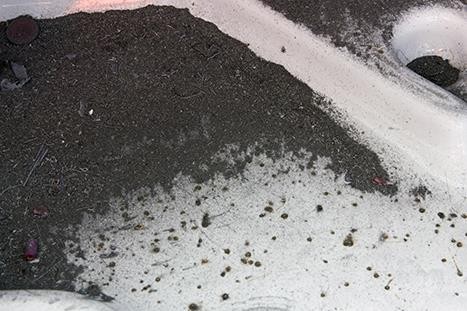Ten golden rules to fight the dust
Rule 1: Do not let dust arise in the first place
If dust particles are whirled up, stored incorrectly or are carried away with work clothing, it is already to late. Dust protection starts at the beginning of production! By the way: Fine dust particles have a diameter of 5 µm. It can take several hours for them to settle on the floor again.
Rule 2: Use low-dust materials
It is worth checking whether lower-dust materials can be used for production. By the way: The use of such substitutes often leads to considerable cost savings if expenses for extraction systems, energy and personal protective equipment can be reduced.
Rule 3: If possible, work in a closed system
The most effective technical way to combat dust is to work in closed systems (enclosures). The dust-free feeding, processing, emptying and storage of powdery materials naturally places high demands on planners and designers.
Rule 4: Extract dust directly at the outlet point
Even substitutes and modern technology are often unable to prevent dust from entering the air at the workplace. In these cases it is particularly important to extract the particles directly at their point of exit.
Rule 5: Optimise and maintain extraction systems
When building dust extraction systems to combat dust, it is generally advisable to hire a specialist company. In addition, the SOS of occupational safety applies: order, cleanliness and safety! Even the most modern and efficient extraction system will lose its effectiveness if it is not cleaned regularly.
Rule 6: Sufficiently ventilate working areas
Even if machines are enclosed and extraction systems are present, particles can still get into the air. Dangerous fine dust is not even visible to the naked eye and can remain in the air for hours after the end of the work process. Sufficient ventilation of the working areas is therefore indispensable.
Rule 7: Immediate and dust-free disposal of waste
Waste must be disposed of at short intervals. For this purpose, facilities that collect falling or escaping material must be taken into account during the planning of a plant. These collecting devices must be designed in such a way that they are easily accessible and easy to empty.
Rule 8: Clean workplaces regularly
The workplace must be cleaned with as little dust as possible. Coarse material is picked up with shovels. If possible, clean with a damp cloth. This requires smooth walls and floors. Do not sweep dry with a broom! No blowing off of dust deposits!
Regel 9: Keeping work clothes clean
To clean work clothing, it must only be washed. Under no circumstances should it be shaken out or blown off with compressed air. This will stir up dust stuck in the work clothing and allow it to enter the breathing air.
Rule 10: Respiratory protection for dust-intensive work
If the risk assessment shows that the substance-related air limit values or the air limit value for inhalable and alveolar dust (general dust limit value) are not complied with, the employer must provide employees with suitable personal dust protection equipment.
The "Ten Golden Rules for Dust Control" are taken from the homepage of the German statutory accident insurance.

